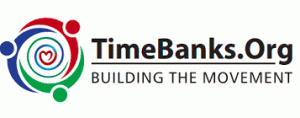Reflection by Edgar Cahn
Today, as I read this story, New Zealand comes to mind. You may ask: “What could New Zealand possibly have to do with a Yemini couple living in Michigan?” I was recalling an earlier trip to New Zealand. It had been a celebration: the tenth anniversary of the critical role that TimeBanking had played in helping that nation recover from a major earthquake. TimeBank pioneers, Margaret Jeffries, Helen Dew, and their band of change agents had played a critical role, piggy-backing and transforming the process of physical recovery into a more fundamental renewal: using TimeBanking to make a commitment to life and life forces, to renewal of community, and a rejection of colonial materialism and ethnic subordination.
But this year, in 2019, the values, celebrated by that continued renewal had just been threatened by an act of intentional and explicit racism. A white supremacist had just murdered 49 Muslims at prayer. His act was intended to put in jeopardy the trust, the connectedness and the historic healing that New Zealanders were using the TimeBanking movement to renew and advance. He had sought to dismantle an extraordinary ecosystem of care, respect, and interdependence that New Zealanders had been intentionally fashioning from different cultures, old and new.
He failed. His action violated more than the criminal law. We now understood his action as amounting to an act of sacrilege. We became conscious that what we were doing by seemingly small actions constituted our way of affirming a higher order – one that requires us to respect our continuing debt to each other, to other species, and to the planet.
So my first thought upon encountering this Michigan story was how, by embracing the Ali family, the Michigan TimeBank was affirming our common humanity, advancing the healing, affirming the love, rekindling the trust, and renewing the determination to affirm the same life forces that I saw in New Zealand. They are global and fundamental.
On March 23rd, TimeBanks around the world will celebrate International TimeBanking Day as an assertion that we have the capacity to create, renew, and strengthen a world which enables every living being to honor and advance the capacity of every other living being to be all that it can be.
Yes. There will be earthquakes. Yes. There will be violent, twisted spirits in Michigan and in New Zealand that undertake to destroy that balance. But together, there is resilience. We shall overcome by reaffirming and renewing the bonds that sustain us all on this tiny, fragile planet.
May this note be regarded as my personal prayer: for the restoration, the healing, the renewal that comes when we are reminded both by celebration and by tragedy of how precious and miraculous life is – moment by moment.


Please sign in or register to make a comment.